Google Anti-Diversity Memo: Fired Engineer Wants To Sue, But Faces Hurdles
The controversy surrounding the firing of former Google engineer James Damore over an internal diversity memo took another turn late Tuesday, as Damore officially filed a formal complaint with the National Labor Relations Board due to his dismissal from Google. It’s also the latest legal move for Damore, who publicly said he wants to take the search giant to court.
At the moment, Damore’s prospects for a case against Google appear to be uncertain. For Google, the company contends the memo clearly had disruptive and hostile effects within its offices. According to a post from Google CEO Sundar Pichai, the former software engineer’s memo had a negative response among Google’s staffers and, more significantly, portions of the document violated the company’s code of conduct for its employees.
Read: Google Anti-Diversity Manifesto Author Identified And Fired
While Google initially struggled to handle the early backlash to the diversity manifesto, the company’s progressive culture eventually guided its response. In past research, Jennifer Chatman, professor of management with the Haas School of Business at the University Of California, Berkeley, found that establishing political correctness norms improved creativity and novel thinking among groups of men and women by removing areas for potential uncertainty.
Chatman told International Business Times that Google’s dismissal of Damore reflected how much the company values maintaining its corporate culture and showed the degree of internal hostility caused by the diversity memo.
“You can have a culture in which people articulate values, but unless those values are actually upheld through supporting behaviors that are aligned with those values and sanctioning those that are not aligned, then you have what I would call a vacuous culture,” Chatman said. “What I think Google is doing is simply standing behind its stated values and that’s indicative of a strong culture. It’s not enough just to have the content, you actually have to enforce the cultural norms.”

Last week, Damore’s 10-page internal memo blasting Google’s approach to diversity hiring was leaked and initially made public by Motherboard. While Damore initially defends his memo’s focus, writing that he values “diversity and inclusion,” the paper prominently contends that women are not represented at higher levels in the tech industry compared to men because of automatic biological differences.
“Differences in distributions of traits between men and women may in part explain why we don't have 50 percent representation of women in tech and leadership,” Damore writes. “Discrimination to reach equal representation is unfair, divisive, and bad for business.”
Damore’s memo argues female workers generally tend to be more neurotic and move into less detail-focused fields of work due to how they prefer "people rather than things.” It also touches on the dominance of progressive points of view within Silicon Valley and Damore also said that conservative voices are underrepresented at companies like Google.
For female engineers, coders and other technical employees, the idea that a staffer would openly argue that they were at a disadvantage because of their gender and that other employees supported this viewpoint was likely untenable for Google. As Wired reported, the memo received its share of opposition and support within Google’s internal discussion threads. In his memo, Pichai also defended the right to debate and dissenting opinions within Google, but said the memo’s language crossed a line.
Read: James Damore Files NLRB Complaint After Google Memo Firing
“To suggest a group of our colleagues have traits that make them less biologically suited to that work is offensive and not OK,” Pichai said.
In a blog post, former Google senior engineer Yonatan Zunger also points out the practical concerns of trying to continue to work with an employee with a toxic internal reputation:
And as for its impact on you: Do you understand that at this point, I could not in good conscience assign anyone to work with you? I certainly couldn’t assign any women to deal with this, a good number of the people you might have to work with may simply punch you in the face, and even if there were a group of like-minded individuals I could put you with, nobody would be able to collaborate with them. You have just created a textbook hostile workplace environment.
Legal experts have also dismissed common online opposition to the firing on free speech grounds. As a tech company, Google is a private business that’s not subject to First Amendment guidelines.
Plus, the diversity memo would have be a persistent headache for Google if it had chosen to keep Damore onboard as an employee. According to Richard Ford, professor of law at Stanford Law School, employers have a legal obligation to reject blatant instances of discriminatory behavior in the workplace and the Damore memo would’ve been a clear-cut and publicly documented example of this type of comment.
California law does offer some basic protections against alleged retaliation to political speech, but it typically focuses on organizing and activism done outside of the office. Damore’s potential case could argue that he was engaging in worker-related activism, but Ford told IBT that this would a difficult legal approach to pursue.
“Federal labor law prohibits employers from taking adverse action against employees who engaged in work related organizing advocacy (such as union organizing),” Ford said. “This is probably his best shot, but it is a big stretch: the law is designed to protect labor organizing — not general political expression or general criticism of the employer.”
Google Memo Full Text


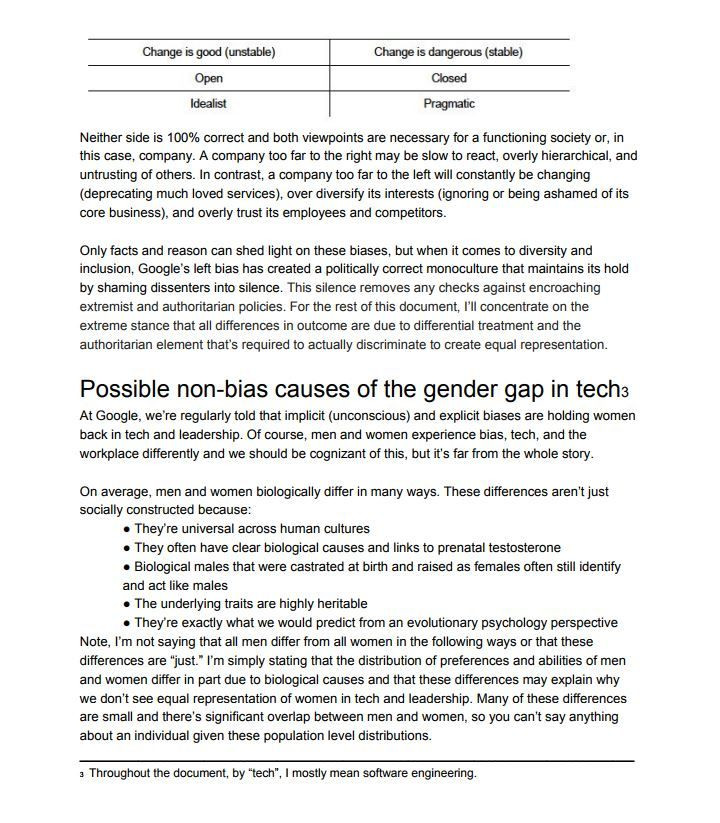
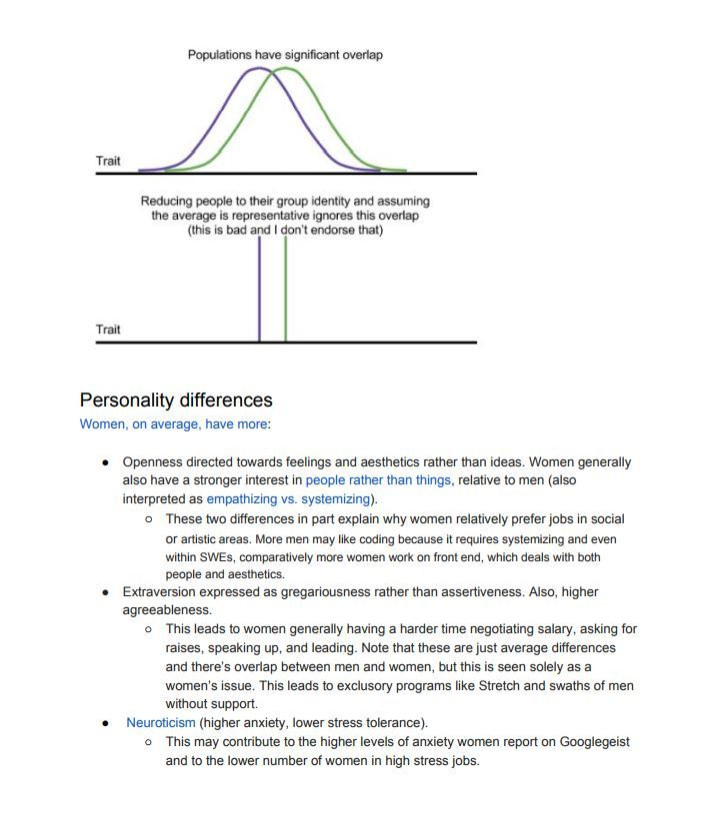
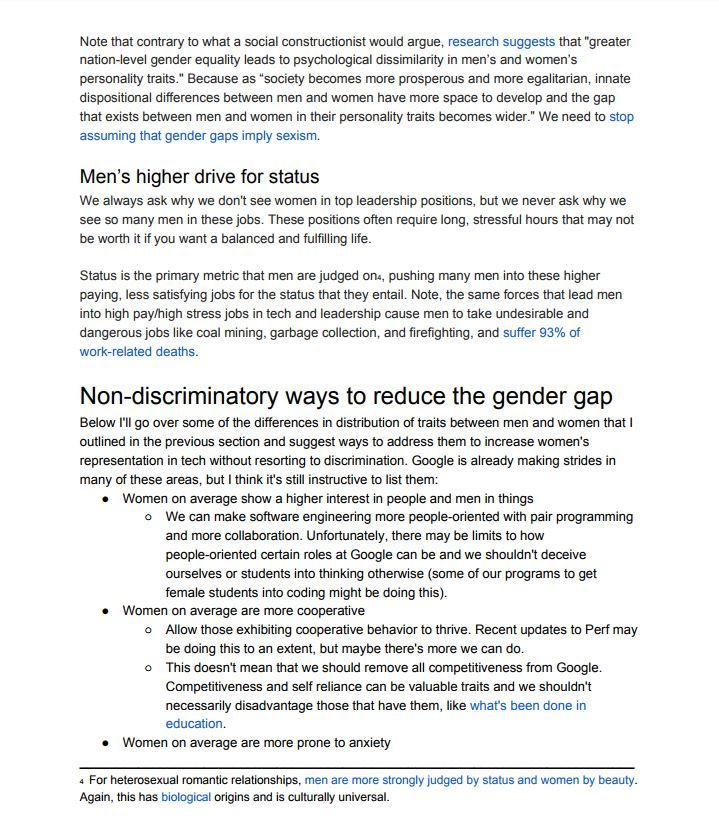
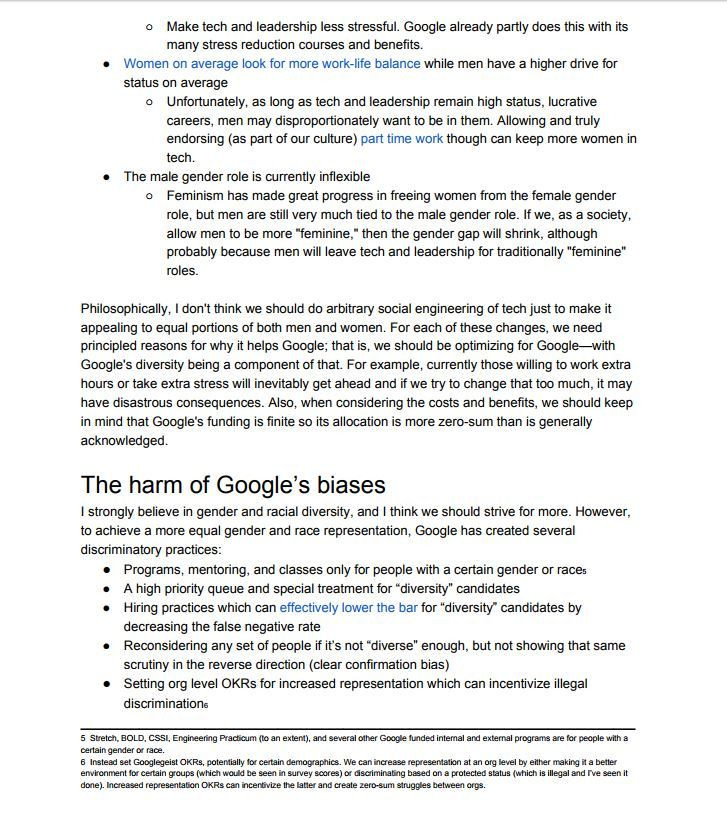
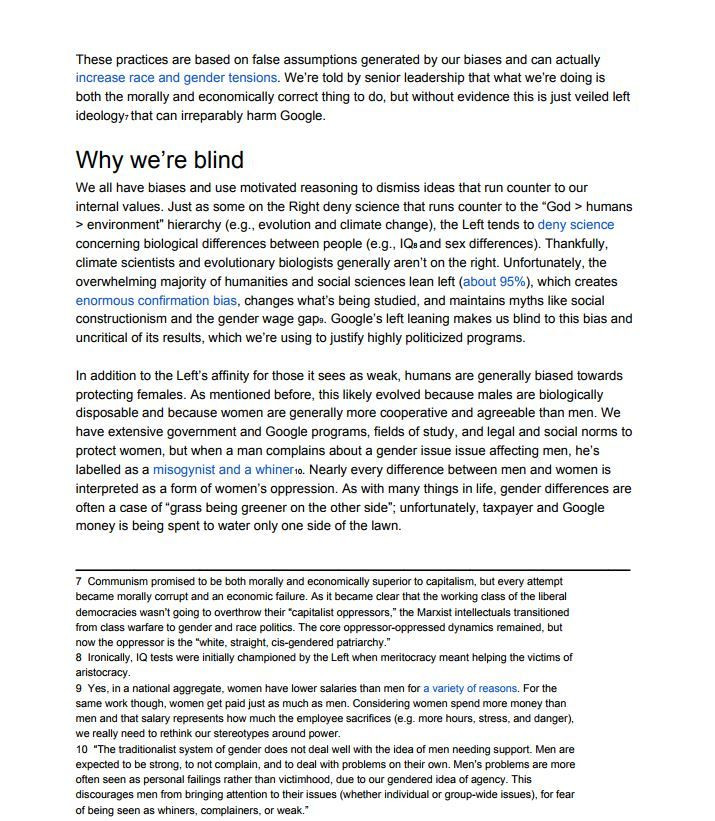
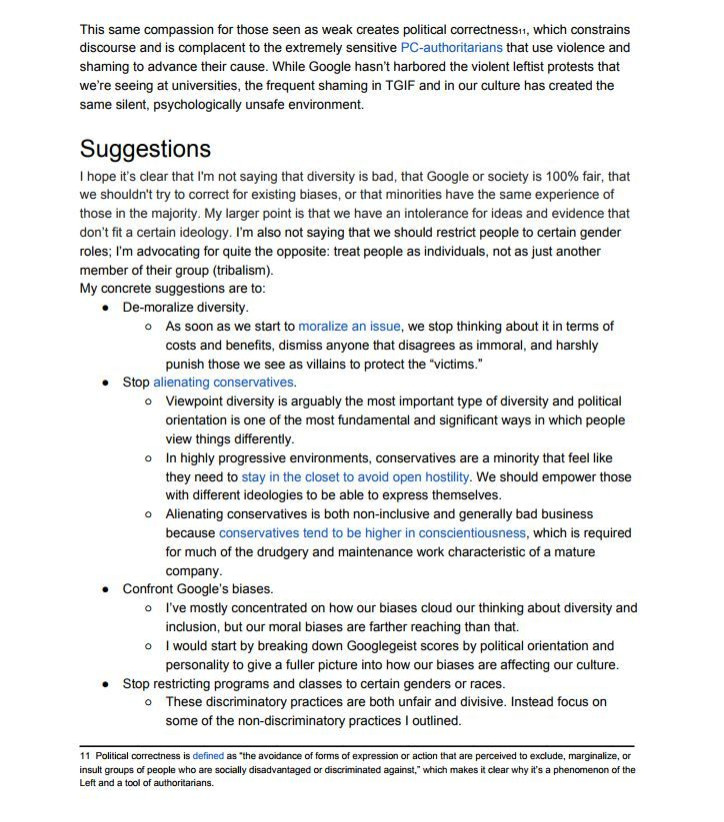
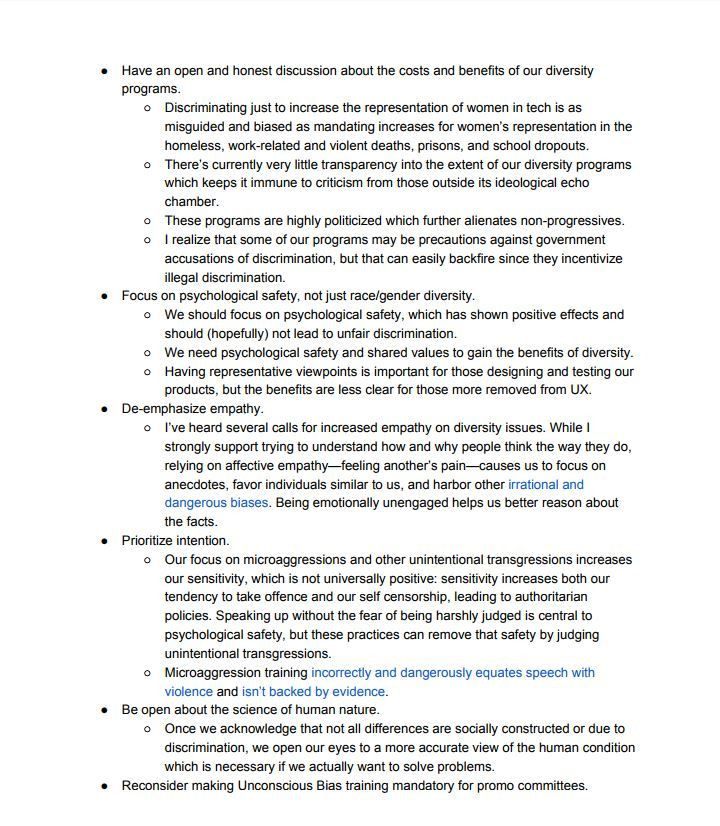

© Copyright IBTimes 2024. All rights reserved.





















